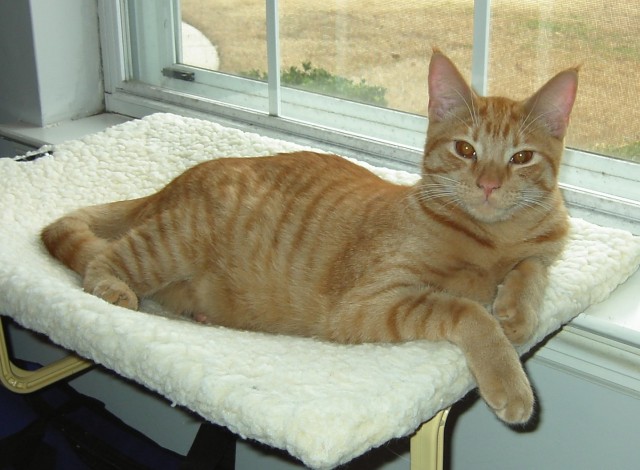QuestionI have a 8 year old cat who has always been healthy.
About 2 1/2 months ago he had an impacted anal gland, which the vet sqeezed out and he was put on antibiotics. After the antibiotics were done, he started vomiting daily, I didn't bring him in right away because around that time I had switched his food to science diet senior from the original science diet. I thought the vomiting was from the food. I finally brought him in and he was running a temp, along with fluid in his lungs and heart. The vet gives me unclear answers! He did a chest x-ray, which showed fluid, and a cardio pet which was normal. Also had to have 2 vets to detect a heart murmur of a 2, on a scale from 1-5. The doctor suspected cardiomyopothy. Now my baby is taking furosemide for a little over a week then went in for another chest x ray which looked the same as the first x-ray. the doctor said to give my cat the medicine every other day. My cat appeares to be sluggish more now. I want to know if I am getting the right diagnosis or if there is something that more I could be looking into that my vet is not doing, or if other meds are more helpful? I just have a feeling that there is something else going on with my baby, or more could be done!!! PLease help? Also we checked for hypothyroidism and that was normal.
AnswerCardiomyopathy is a tough one. There are several forms of it, and treatments may vary depending on the form.
Furosemide is directed toward getting rid of the fluid in the chest. The chest can sometimes be tapped to have fluid removed. This would probably make him feel better but wouldn't address the underlying problem.
Many cats with cardiomyopathy do well to take a blood thinner, like warfarin or aspirin, because heart murmurs associated with cardiomyopathy often lead to blood clots in the heart. While they don't cause problems in the heart, once dislodged, they flow into smaller blood vessels and can cause death or other serious problems.
Some other drugs may help improve heart function with certain types of failure, including Digoxin, beta blockers, and calcium channel blockers.
There are few certainties with cardiomyopathy. It does sound like your vet has covered all the bases to me, but it might be wise to get a referral to a cardiologist, since he's not showing improvement.
Also, if a full blood pannel has not be run to test for all organ function and a complete blood count, I definitely would recommend that. Though it seems like a heart problem only right now, some other issues might be coming into play.

 Lost Cat questions
QuestionRusty
QUESTION: Ali,
My new
Lost Cat questions
QuestionRusty
QUESTION: Ali,
My new
 Orphaned baby kittens in the rainforest
Question
kittens
Hello,
My wife and I are volunteers in
Orphaned baby kittens in the rainforest
Question
kittens
Hello,
My wife and I are volunteers in
 Throwing Up and Pooping
Question
Pepper
Hi,
Well my cat is 12 years old and la
Throwing Up and Pooping
Question
Pepper
Hi,
Well my cat is 12 years old and la
 what do i do
Question
this is shadow
i just got a kitten from the lo
what do i do
Question
this is shadow
i just got a kitten from the lo
 Recently Adopted Cat
Question
CREAM PUFF
Hello !
Hoping all is well.
Recently Adopted Cat
Question
CREAM PUFF
Hello !
Hoping all is well.